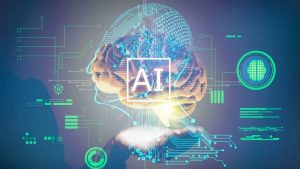Global Governance & Artificial Intelligence: A New World Order.

On July 2018, Yuval Noah Harari, published one of its best-sellers – following Homo Sapiens and Homo Deus – “21 Lessons for the 21st Century” in which he compared the impact of Artificial Intelligence (AI) on governance as the equivalent of the impact of the industrial revolution on feudal societies, in other words, provoking their disappearance.
The efforts to reform our current global governance system so that it can be capable of facing the challenges of the XXIst century are in most of the cases, missing one big issue: AI. In fact, a brand new world dominated by machine learning is emerging in which nation-states and classic multilateralism are slowly entering the history books. The impact of artificial intelligence does no longer await in the future, it is here and now, and we need to be prepared.
Internet of Things , electoral processes credibility, economic inequality, climate change response, poverty reduction, international trade, public safety, public health, economic competitiveness, rule of law, human rights, democracy as we know it; all of these aspects of governance are already impacted by technology. This impact will be larger depending on whether a country has access to these digital tools. Consequently, in order to make multilateralism sustainable, it is necessary to approach the challenges of artificial intelligence in a comprehensive way, with the participation of private/public organizations, mainly from the Global South. We need to make this technology available for all, and multilateralism actors need to encourage tech for good. Unfortunately, the current trend seems to pulling at the opposite end, and AI risks contributing to an unstable Global Order.
This is the reason why, since its very beginning our organization has launched pioneering initiatives in AI from the Global South, in order to prevent poverty (Paris Peace Forum 2018) or to prevent gender violence in the world (Paris Peace Forum 2019). Our guiding principle is to share this technology with the developing world (South-South Cooperation Approach). We consider that our participation at the Paris Peace Forum gives us the opportunity to shed light on civil society organizations from regions like Latin America currently developing this state-of-the-art technology for the Res Publica. In order to approach the challenges of the future, it is our mission to advocate the development of artificial intelligence in governance at the local, regional and international scale. We are proud to do so from Cusco, Peru.
The benefits of AI to governance and public policy planning are unmatched. Indeed, we can successfully mitigate or eradicate – environmental risks, pandemic outbreaks, corruption, poverty, gender violence, etc. There are no limits to AI’s ability to enhance democracy-building or sustainable human development. The potential of AI in governance (global) has by now proven to be firmly rooted in reality. For instance, the recent conflict between the US and China over access to 5G technology illustrates the importance of artificial intelligence as a major matter in domestic and foreign policy. Consequently, if multilateralism does not convey an appropriate response, unilateralism will do it, thence undermining the efforts of global governance reform.
Nonetheless, the Global Order is not completely unarmed, and there are many interesting initiatives worth paying attention to. For instance, it is possible to use international standards (such as ISO) to reduce the negative impact of non-state stakeholders on governance. OECD member states and the UN on its AI Convergence Report have already considered this initiative. However, although these initiatives are worth noting, alone they are not enough. It is necessary to create a permanent inter-governmental panel on AI (as was the case for climate change) s with the participation of civil society organizations from across the globe, in order to create hard and soft instrument for the preservation of AI for humanity.